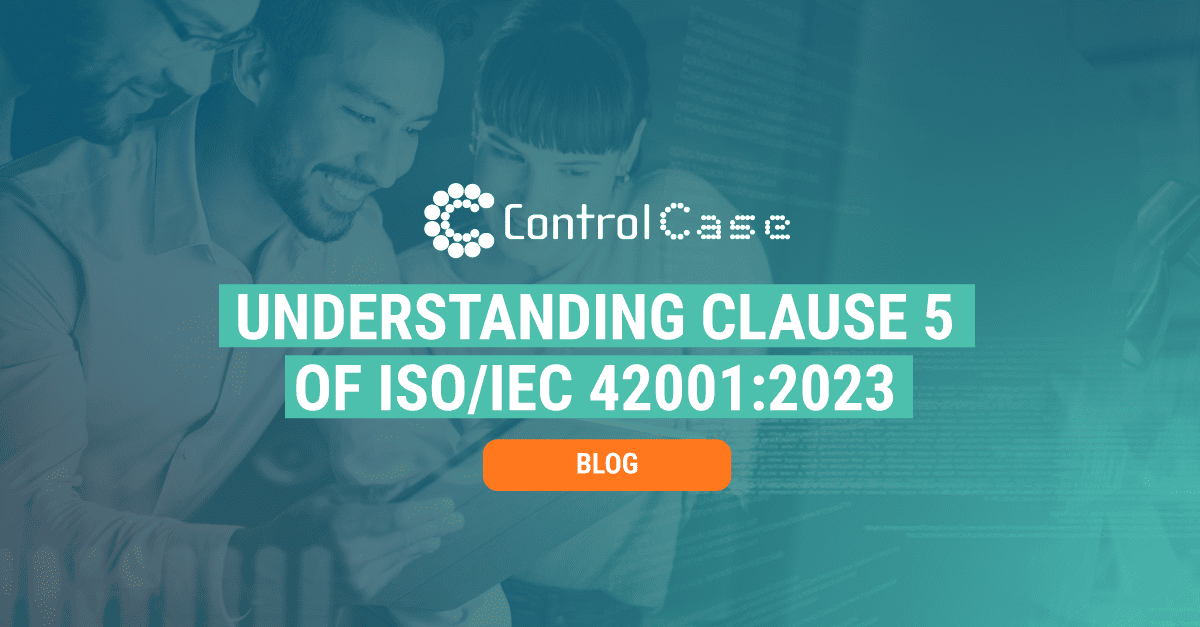
Understanding Clause 5 of ISO/IEC 42001:2023
Explore Clause 5 of ISO/IEC 42001:2023, which emphasizes leadership and commitment in AI management ...

Understanding Clause 4 of ISO/IEC 42001:2023
Discover how Clause 4 of ISO/IEC 42001:2023 guides organizations in understanding their internal and...

What is ISO/IEC 42001:2023?
In the rapidly evolving landscape of artificial intelligence (AI), ensuring the ethical, secure, and...
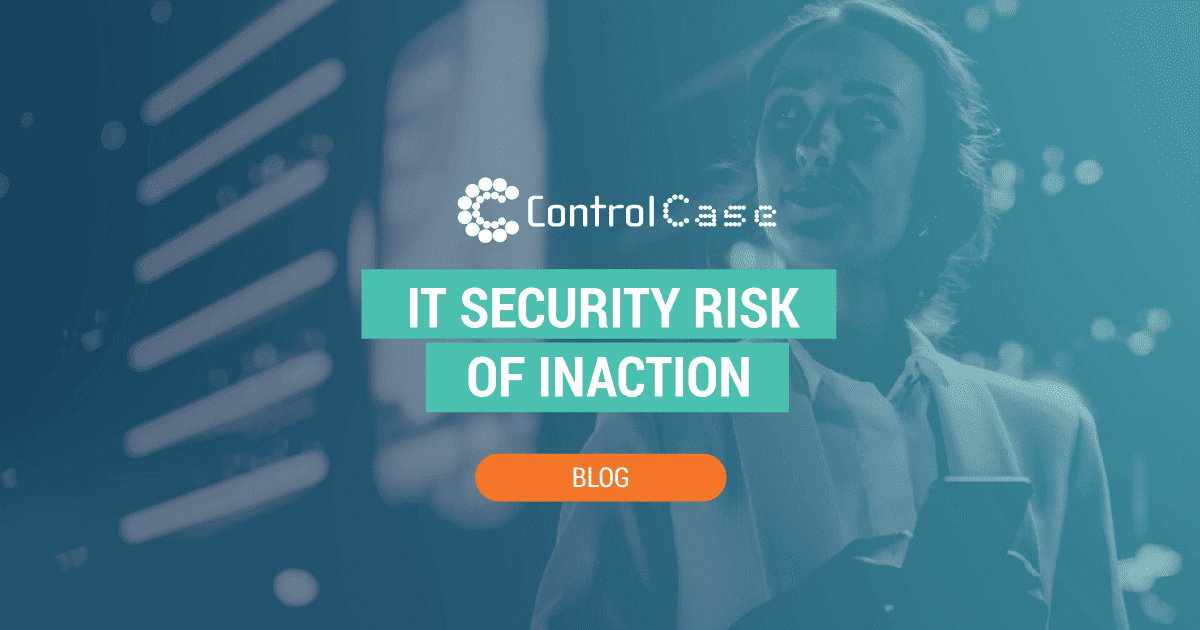
IT Security: Risk of Inaction
Discover the critical risks linked to the inaction or suspension of your cybersecurity program with ...

Important Changes to ISO 27001:2022
Learn about the new changes to ISO 27001, what they are, and what they mean for your business.

What is ISO 27001? A detailed, simple, and straightforward guide
ISO 27001 is the leading international standard for information security. In this guide, we will dis...

HIPAA Compliance Basics
Learn more about keeping health information and data secure through HIPAA Compliance. In our most re...

CSA (Cloud Security Alliance) STAR Program
The CSA (Cloud Security Alliance) established the STAR program as a solution for cybersecurity compl...

HITRUST 2023 Update Blog
Perhaps you’re learning about HITRUST and wondering ‘what is HITRUST certification’? Or, ‘wh...
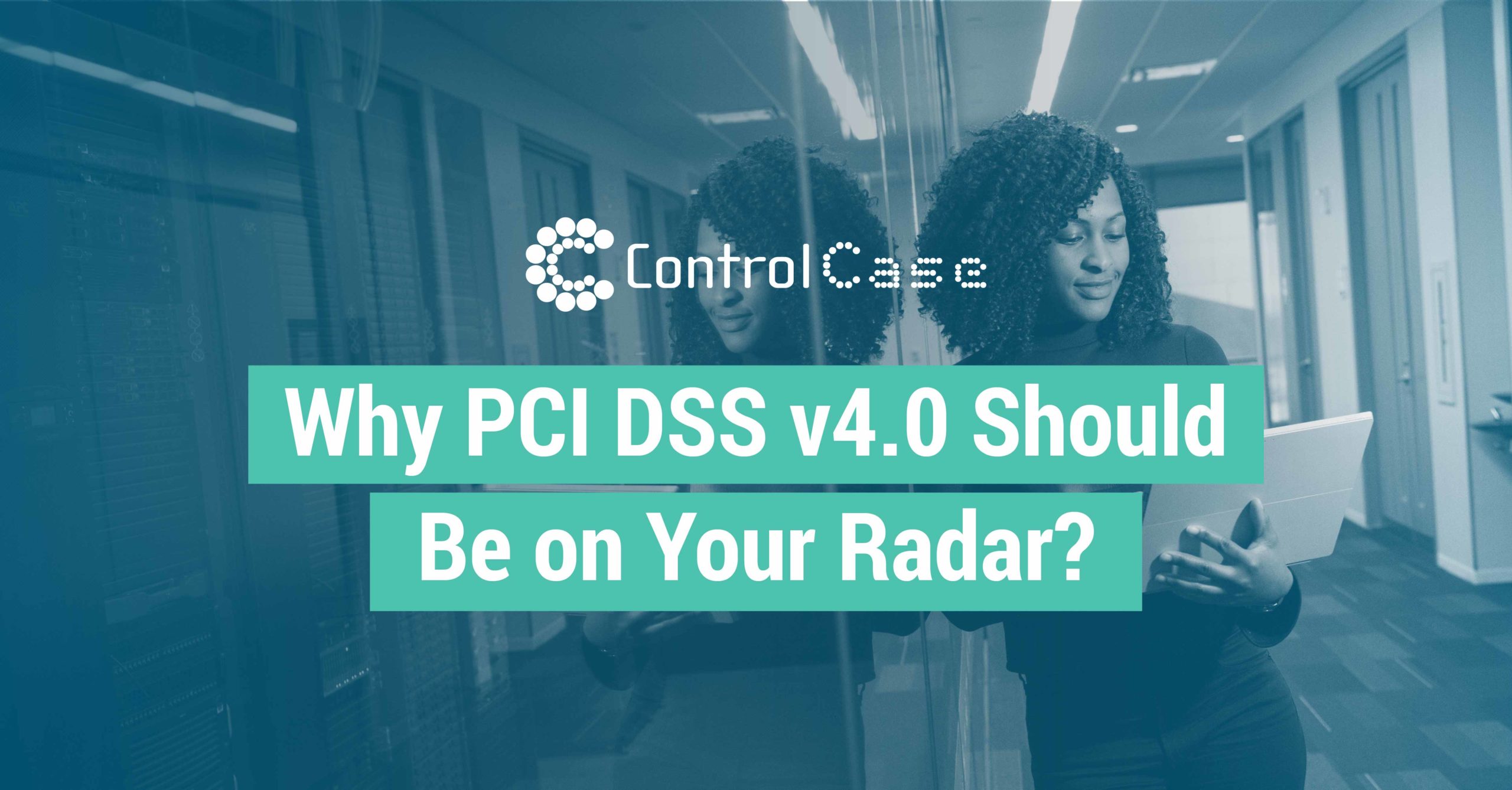
Why PCI DSS 4.0 Should Be on Your Radar?
With the release of PCI v4.0, the countdown has started for organizations already PCI DSS Certified ...

Data Protection by Design
The data protection by design approach assists in an organization’s ability to implement Defense i...
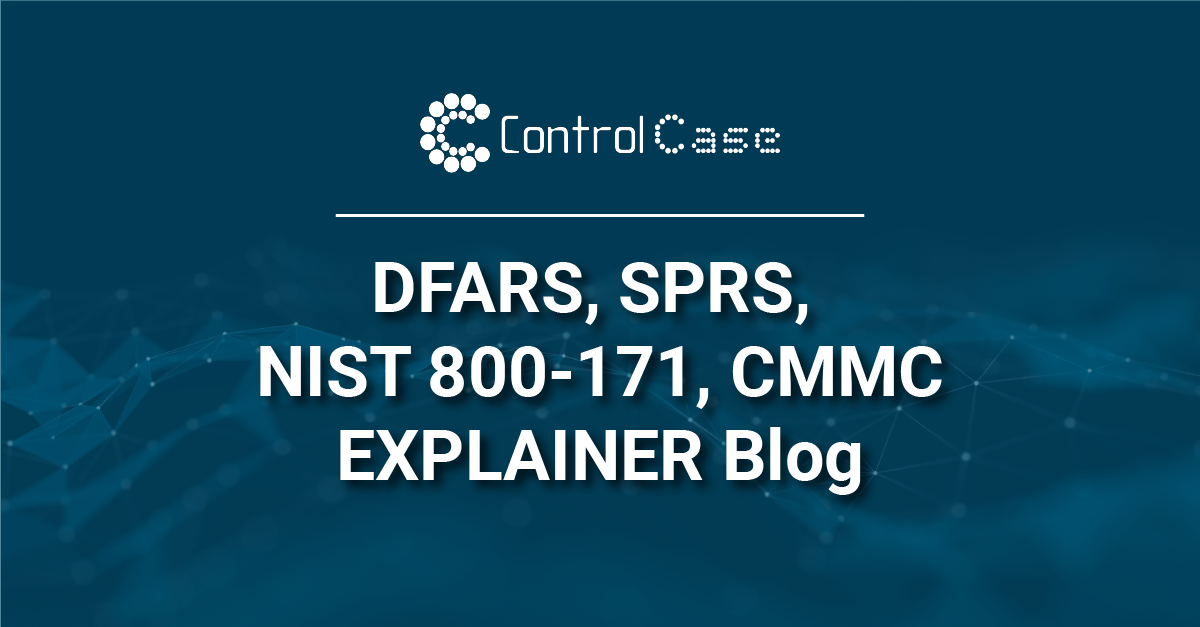
DFARS, NIST 800-171, SPRS, and CMMC 2.0 Explainer for DIB Contractors
If you’d like to know more about how DFARS, NIST 800-171, SPRS, and CMMC all work together, you’...

Updates and Changes to ISO 27001:2022
ISO 27001:2022 was recently announced to update and replace ISO 27001:2013. The modernized 2022 repl...
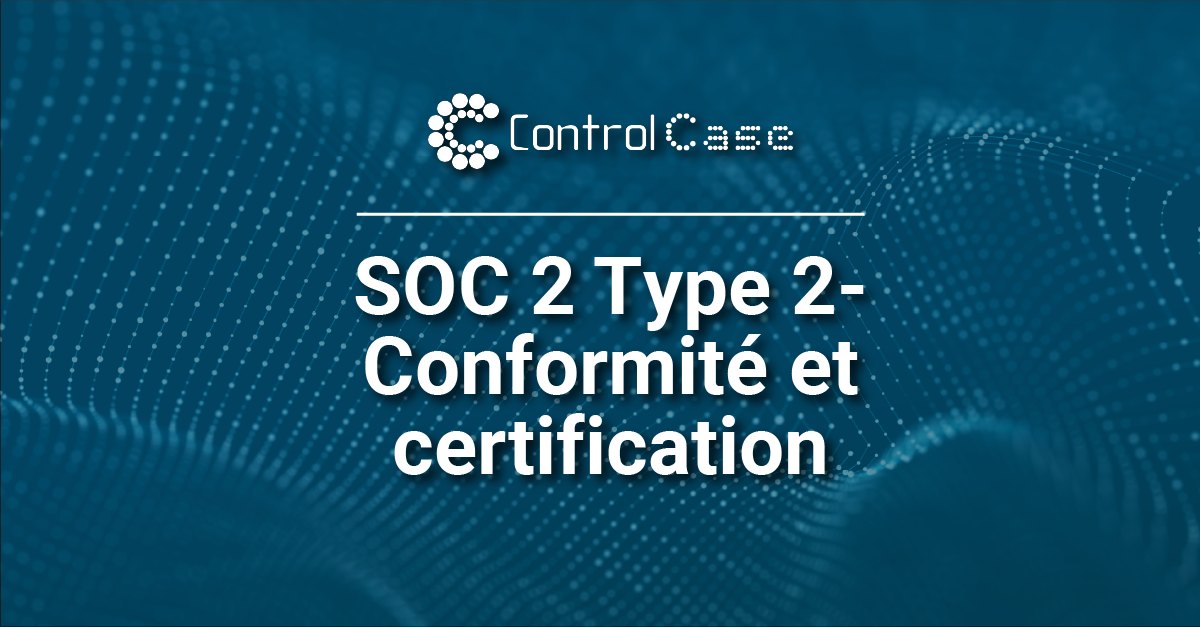
SOC 2 Type 2 – Conformité et certification
SOC est l'abréviation de System and Organization Controls et représente un ensemble de normes de c...
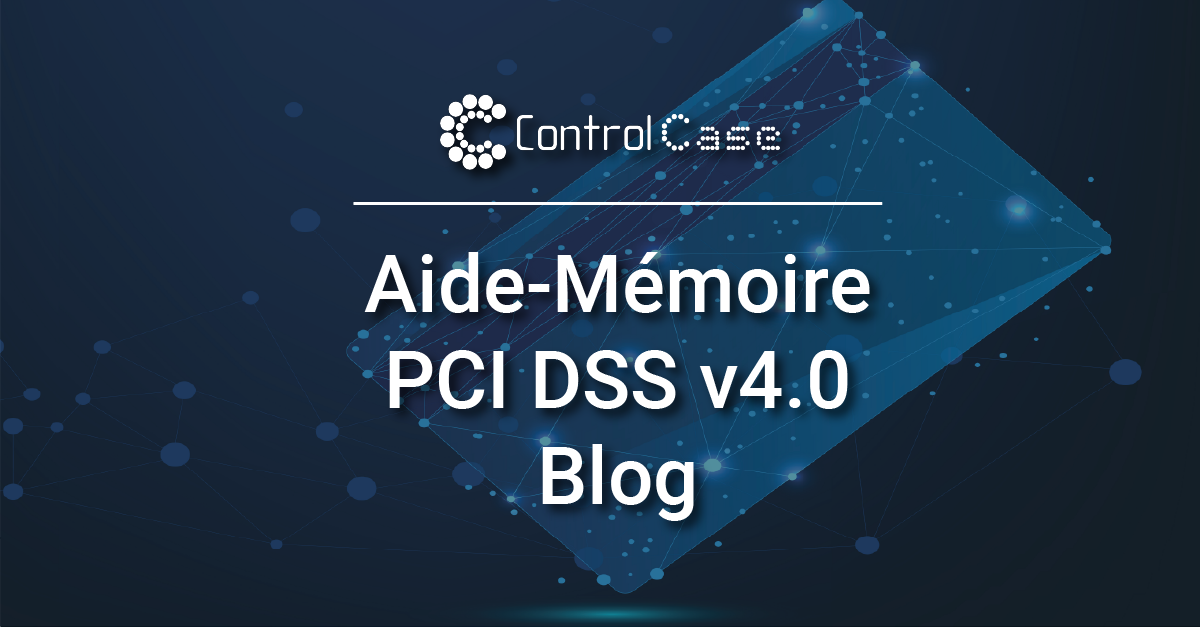
Aide-Mémoire PCI DSS v4.0
La norme de sécurité des données PCI (PCI DSS) a été établie en 2004 par les principaux émett...
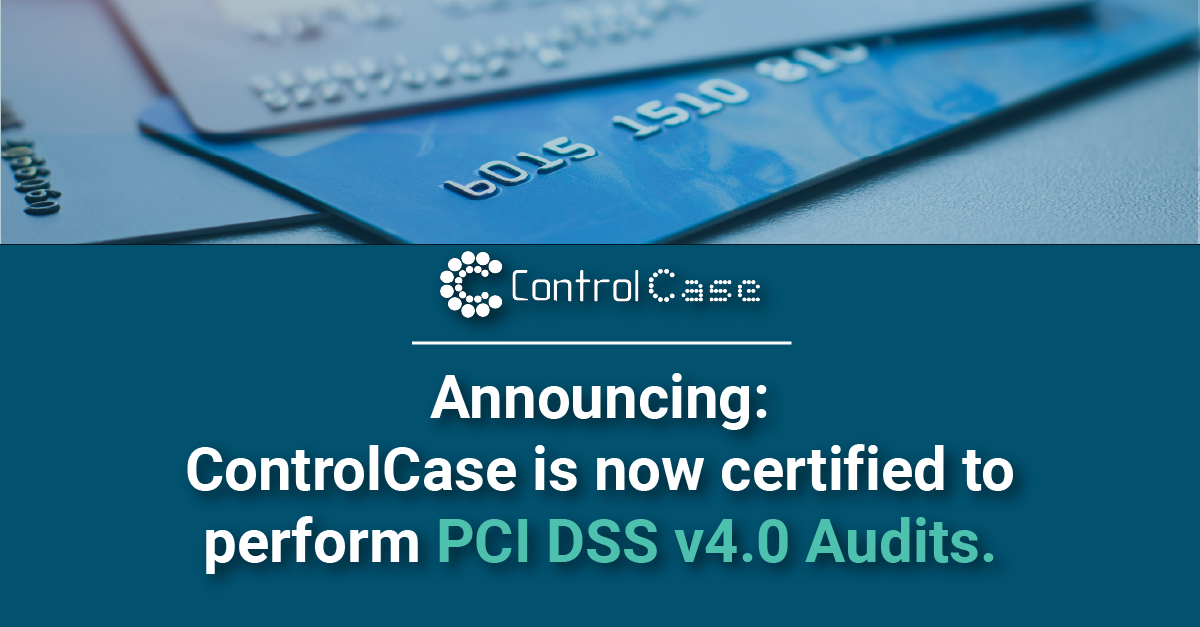
PCI DSS v4.0
The goals for PCI DSS v4.0 are to continue to meet the security needs of the payment industry, to pr...
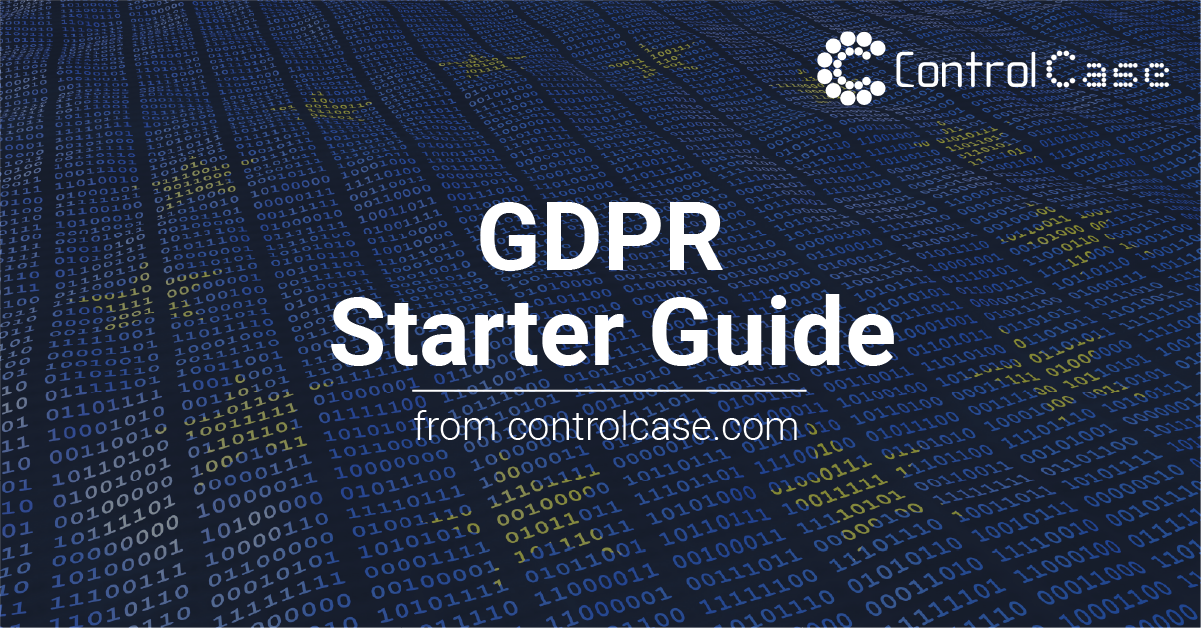
GDPR Starter Guide
Securing and protecting this data is one of the most important tasks at hand for organizations as we...

Quelles Sont les 12 Exigences de Conformité PCI DSS?
Payment card industry (PCI) compliance is mandated by credit card companies to help ensure the secur...
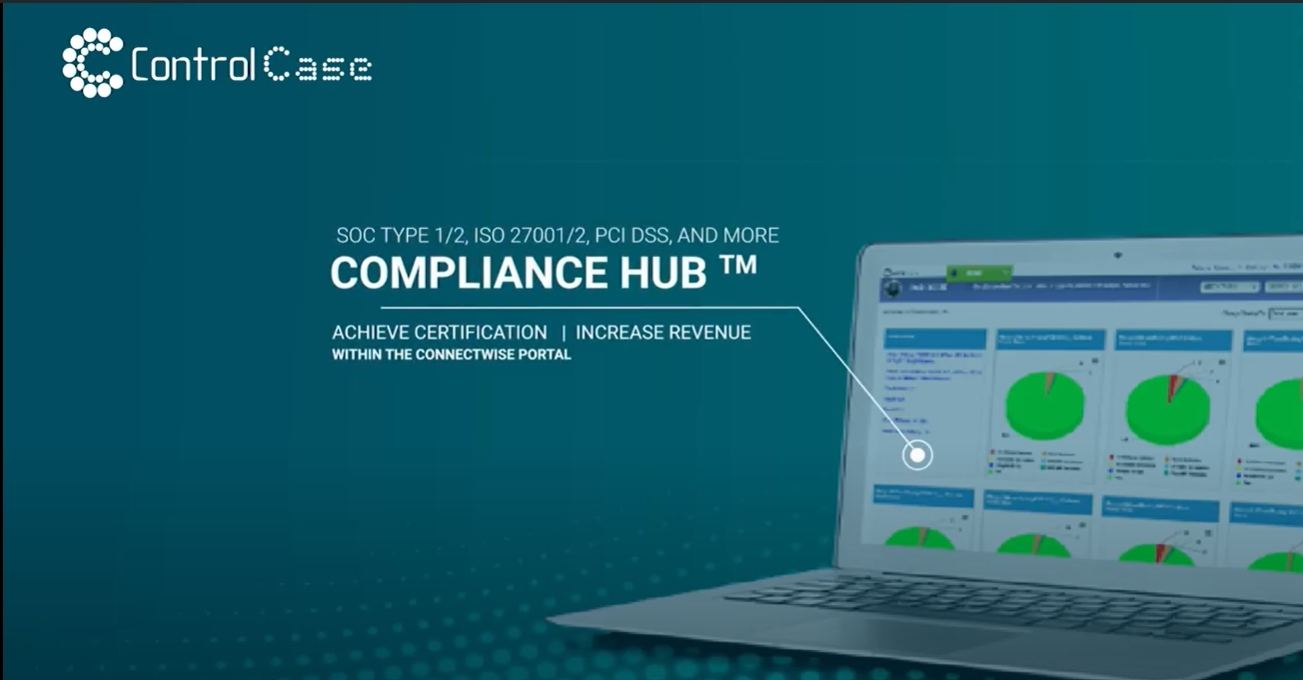
ControlCase Compliance Hub & ConnectWise Manage
ControlCase now certifies MSPs to multiple regulations including PCI DSS, ISO 27001 and SOC 2 using ...

Log4j Vulnerability and how to remain PCI DSS Compliant
Payment card industry (PCI) compliance is mandated by credit card companies to help ensure the secur...
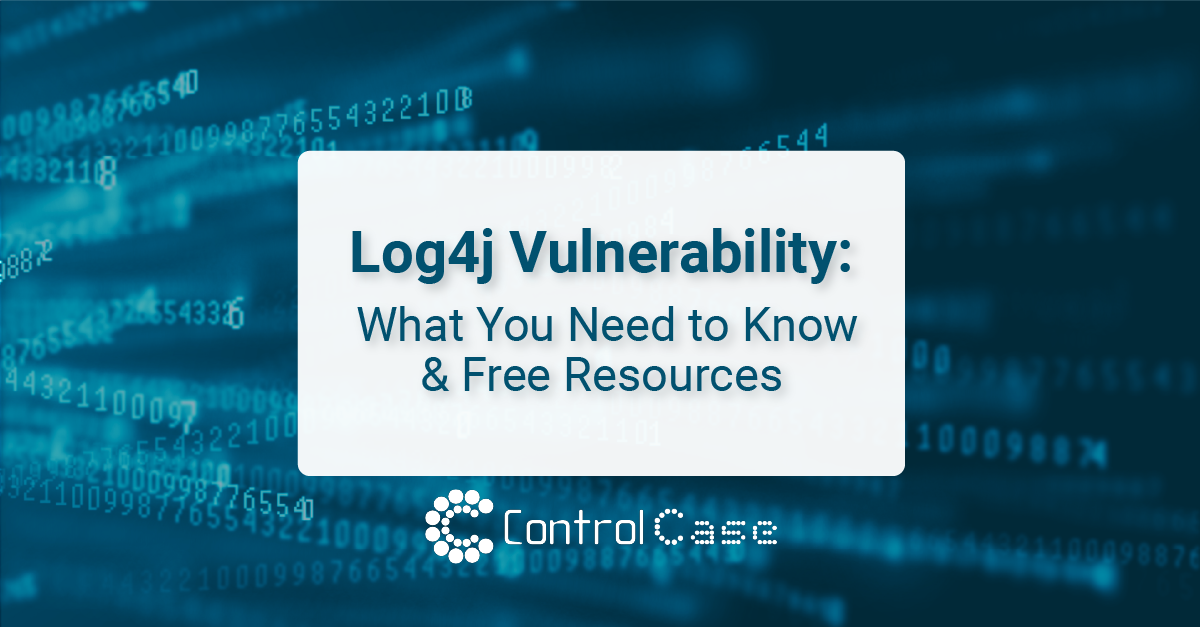
Log4j Vulnerability: What You Need to Know
& Free Resources
The experts at ControlCase have explained Log4j Vulnerability and gin free IT Security Templates to ...
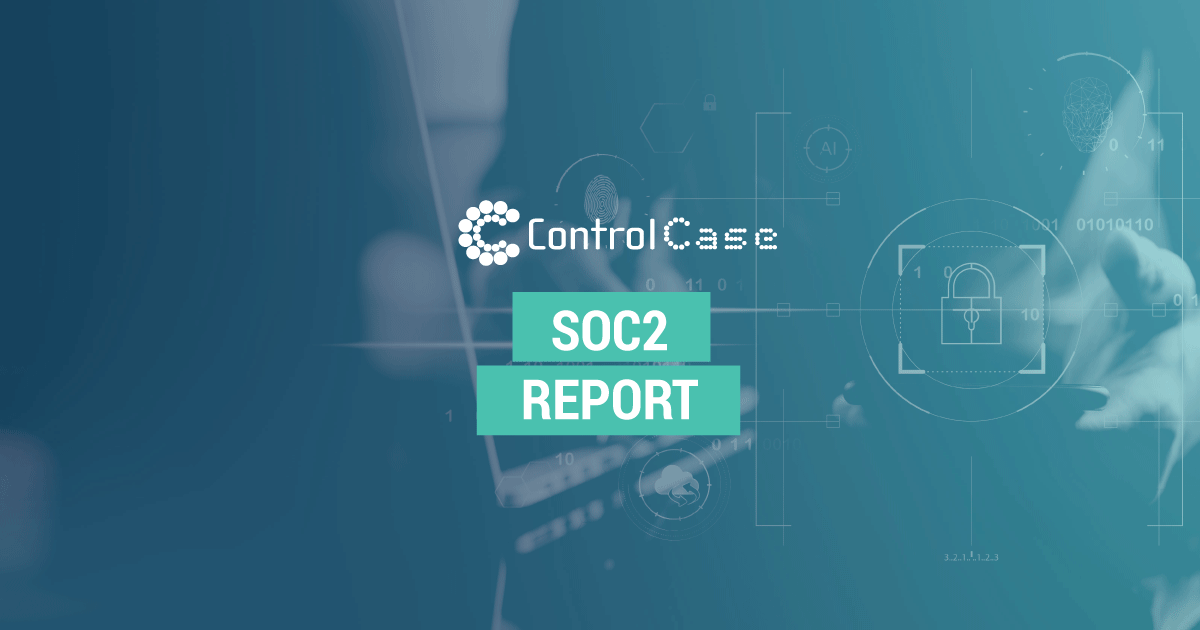
Reducing Privacy Risk with SOC 2®
Reducing Privacy Risk with SOC 2. Privacy compliance is centered on controlling the use of PII (Pers...

HIPAA, CCPA, and GDPR: Privacy or Information Security?
Modern enterprise security teams must address many different types of requirements as they create th...
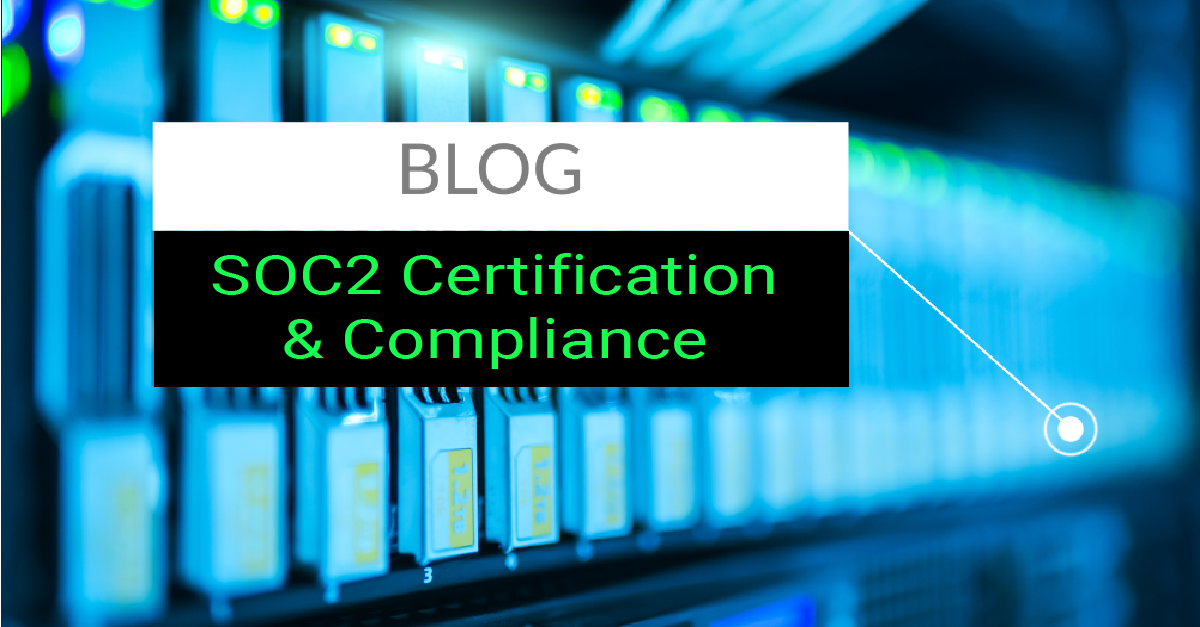
SOC 2 Type 2 Compliance and Certification
SOC stands for System and Organization Controls and represents a set of compliance standards develop...

CCPA vs. GDPR
ABOUT GDPR GDPR distills data privacy law & regulation in the European Union (EU). It rela...

What is FedRAMP?
FedRAMP, is one of the US’s most rigorous security compliance frameworks. Learn more from Cont...

PCI DSS Resource Guide
Everyone storing, processing or transmitting cardholder information is required to follow PCI DSS. G...

What are the 6 Major Principles of PCI DSS?
What are the 6 Major Principles of PCI DSS? The PCI DSS standard establishes the security strategies...

ControlCase Cares About Women In Cyber
Interviewed by TagCyber, ControlCase’s SVP Risk Management & Global Customer Success, Sham...

SolarWinds SUNBURST Backdoor Supply Chain Attack – What you need to know
If your organization uses SolarWind products, click for suggested actions, or contact us to learn mo...
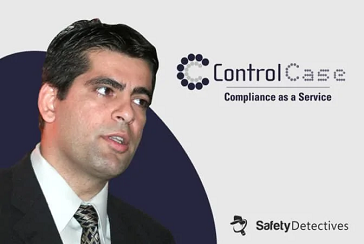
Safety Detective – Interview With Kishor Vaswani – ControlCase
Kishor Vaswani, Chief Strategy Officer of ControlCase – an interview with Aviva Zacks of Safet...

Why Fortune 500 Companies need Continuous Compliance?
Continuous compliance is a Software as a Service offering from ControlCase where it continuously rev...

¡Todo es Privado! ….No Significa No….
The push towards digitization across the globe means that various industries like retail, healthcare...

Désormais tout est privé …. Non signifie Non …
The push towards digitization across the globe means that various industries like retail, healthcare...

It’s All Private!!!! – No Means No…
The push towards digitization across the globe means that various industries like retail, healthcare...

Supporting Compliance as a Service: An Interview with Kishor Vaswani and Dr. Ed Amoroso of TagCyber
Dr. Ed Amaroso and Kishor Vaswani on Compliance as a Service in the TagCyber publication Market Outl...

Importance of building a culture of security and compliance within your organization
Meet ControlCase CEO Mike Jenner. He discuss the importance of building a culture of security and co...

How ControlCase’s “OneAudit” and “Continuous Compliance” Solutions Support Clients
The “OneAudit” solution is complimented by the “Continuous Compliance” servi...

One Audit – Concept to Reality – The path forward
The ControlCase assessment framework, including an assessment approach to streamline the audit proce...

Désormais tout est privé – Le barème prêt
La poussée vers la digitalisation à travers le monde signifie que diverses industries telles que l...

It’s All Private!!!! – The Ready Reckoner
The push towards digitization across the globe means that various industries like retail, healthcare...

Why does every Organization need Continuous Compliance?
Continuous compliance is a Software as a Service offering from ControlCase where it continuously rev...

How to define PCI DSS Scope?
When it comes to scoping for PCI DSS, many organizations struggle to understand where PCI DSS contro...

What are the 12 requirements of PCI DSS Compliance?
Payment card industry (PCI) compliance is mandated by credit card companies to help ensure the secur...

How to Manage PCI DSS Compliance Using Zero Trust Principles.
The PCI DSS provides guidelines for securely processing, storing or transmitting payment card data. ...

HIPAA / HITECH Compliance
A HIPAA / HITECH attestation report demonstrates that an organization has implemented safeguards to ...

Be aware if you are storing Card Numbers using hashed and truncated version of PAN
PCI DSS QSA performs PCI compliance assessments that relate to the protection of customer SAD such a...

The best way to be ready for audit anytime – Continuous Compliance
Compliance is a critical element of modern business. It needs to be continuously maintained if organ...

“One Audit” for IT Security Compliance Explained!
The One Audit solution provides the ability for organizations to perform a single audit and certify/...

ISO 27001 Compliance
ISO/IEC 27001 is an information security standard, part of the ISO/IEC 27000 family of standards. IS...

About the PCI Software Security Framework
The PCI Secure SLC Standard provides a baseline of requirements with corresponding assessment proced...

Quick Read? 4 Ways to Use Automation for IT Security Compliance!
4 ways to use automation for making compliance business as usual within your organization. This will...

Key Aspects for PCI DSS Continuous Compliance While Working From Home!
ControlCase follows 3 main principles for Continuous Compliance Management – People, Technology an...

PCI DSS Certification Basics
All merchants must be compliant to the PCI DSS standard. Annual validation (or proof) is required by...

Which PCI SAQ Do I need?
The PCI DSS Self-Assessment Questionnaires (SAQs) are validation tools for merchants and service pro...

We Did It! ControlCase Is Now A PCI Software Security Framework Assessor Company!
The PCI Secure Software Standard provides a baseline set of security requirements and associated tes...
